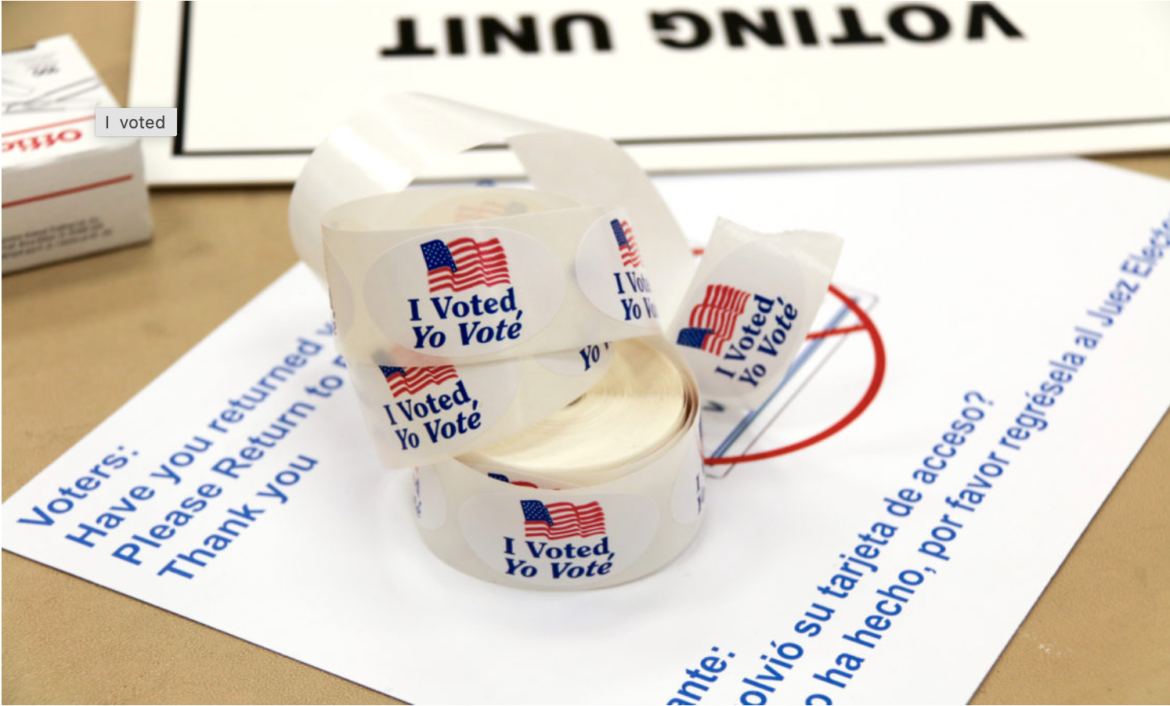By: Phoebe Harris
FAYETTEVILLE, Ark. (UATV) – Super Tuesday falls on Tuesday, March 5, 2024, and is traditionally one of the biggest days nationwide for primary elections and caucuses before the actual Election Day in November. On this day, over a third of all available delegates for both the Republican and the Democratic nominations are set at stake. President Biden is the leading contender for the Democratic nomination, while former President Donald Trump is leading former U.N. Ambassador Nikki Haley in the Republican nomination race.
This year, 15 states will vote on Super Tuesday: Alabama, Alaska, Arkansas, California, Colorado, Maine, Massachusetts, Minnesota, North Carolina, Oklahoma, Tennessee, Texas, Utah, Vermont, Virginia, and one territory, America Samoa, will also vote. Arkansas holds open primaries, which means that registered voters can choose to participate in either party’s primary, regardless of their own party affiliation.
Aside from the highly anticipated contests between presidential candidates, there are dozens of down-ballot primary races for General Assembly, federal positions, and non-partisan judicial seats. Candidates from both major parties will compete to their party’s choice for State House of Representatives, state Senate and U.S. House of Representatives. Voters will also decide on who will sit on the Arkansas Supreme Court, Court of Appeals, and district courts. Many of the races for legislative seats are uncontested, and it’s assumed that uncontested nominees will face off with the opposing party’s nominee in November. Judicial races are nonpartisan, and a winner for these seats should be decided by Tuesday’s elections. According to data from the Secretary of State’s office, there are 21 nominees for the state House of Representatives, two for the state Senate and one for the U.S. House. There are two contested races for the state Supreme Court, two for Circuit Court, one for Court of Appeals, one for prosecuting attorney and 20 for district courts.
According to the 2023 Arkansas Health Index, Arkansas ranks lower in voter registration and voter turnout in national elections. A study conducted by the National Conference of Citizenship stated that 54% of eligible Arkansas voters voted in 2020, compared to 66% of voters nationally.
Alejandra Campos, professor of Latino studies at the University of Arkansas, said there can be many reasons for the decrease in voter turnout.
“Often times what we see with exit polls is that younger people are not interested in politics anymore,” said Campos. “It tells us a lot about what these candidates mean to younger people and ethnic and racial minorities.”
With the primary seasons looking a bit different this year with little to no democratic primaries, there’s been a lot of focus on the republican primaries.Trump is projected to win the Republican nominee. Campos said this projection could possibly be affecting the turnout at the polls.
“It really will be this battle between Biden and Trump, and I think people are just generally uninterested in the outcome, either way,” Campos said.
Campos also emphasized that she encourages her students to educate themselves on the issues at hand on the ballot, instead of the candidates themselves, reiterating that it is a privilege to vote, and she wants her students to take advantage of the opportunity. “I think there’s a lot of privilege in voting and participating in politics,” said Campos, “but it takes a lot of effort on your own part to be engaged and to be knowledgeable. In this upcoming presidential election, where people may not necessarily be excited about either candidate, becoming knowledgeable on your local issues is important, because this is what affects you day-to-day.”


